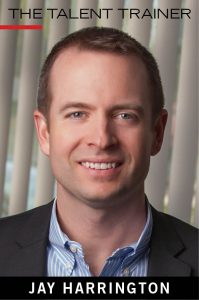Beware the 'Vanity Metric' When Building Your Professional Network
In a world in which we're told to chase more Facebook friends, Instagram and Twitter followers, and LinkedIn connections, it's easy to lose sight of your network's purpose.
September 05, 2018 at 09:53 AM
7 minute read
The original version of this story was published on Law.com

While accepting the Nobel Prize for literature, Ernest Hemingway said, “Writing, at its best, is a lonely life.” But did Hemingway really do his best work in isolation? It depends on how you look at it. Surely he spent considerable time alone behind the typewriter. But away from his manuscripts, Hemingway intentionally immersed himself among peers from whom he drew inspiration.
For example, in the 1920s he moved to Paris to join a scene of expatriate writers and artists, including F. Scott Fitzgerald, who had taken up residence in the Left Bank. Members of this “Lost Generation” hung out at cafes, argued about politics, caroused late into the night on the streets of Paris, and produced some of the greatest works of literature of the 20th century.
Hemingway didn't seek isolation. He was among a scene, and it inspired him to write and publish some of his best work, including “The Sun Also Rises” in 1926.
There's a lesson for young lawyers to be drawn from Hemingway's experience: Your success, to a large extent, will be determined by your ability to cultivate your own small “scene” of smart and supportive colleagues who will push and prod you to greater performance. As motivational speaker Jim Rohn famously explained, we are the average of the five people we spend the most time with. Choose wisely.
In a world in which we're told to chase more Facebook friends, Instagram and Twitter followers, and LinkedIn connections, it's easy to lose sight of what the purpose of a professional network really is. Bigger isn't necessarily better. Rather, a strong network is one that is small, supportive, and consists of people who frequently and meaningfully engage with one another. In this sense, it's far different from modern notions of what a network should be (that is, BIG). Even more important than a big network is to build a small scene. By purposefully and intentionally surrounding yourself with intelligent, creative, hardworking and trustworthy colleagues within your firm, you'll reap the benefits.
Some of these benefits include:
 Collaboration. In the 1970s, young and brash directors Francis Coppola, Martin Scorsese, Steven Spielberg, George Lucas and Brian De Palma (known as the “Movie Brats”) took Hollywood by storm. They competed with one another, obviously, but also collaborated, shared resources, worked on each other's films, gave critical feedback, and formed friendships. They transformed an industry because of, not despite, one another.
Collaboration. In the 1970s, young and brash directors Francis Coppola, Martin Scorsese, Steven Spielberg, George Lucas and Brian De Palma (known as the “Movie Brats”) took Hollywood by storm. They competed with one another, obviously, but also collaborated, shared resources, worked on each other's films, gave critical feedback, and formed friendships. They transformed an industry because of, not despite, one another.
Young lawyers within law firms similarly compete. But the ones who ultimately advance learn to work with, not against, their peers. A scarcity mindset is one marked by the limiting belief that if you help someone else win, you won't win yourself. An abundance mindset recognizes that if you lift someone else up, they'll pull you along with them. Practically speaking, this means that if you cultivate a small scene of smart lawyers around you, it's like having a board of trusted advisers to turn to when you need help, whether it's providing feedback on a brief or analyzing the pros and cons of a career transition. They'll share your content on social media. As you advance together within the firm, they'll look for opportunities to bring you into pitches and new engagements. And when they move on, they'll think of you for new business opportunities.
Motivation to Improve. In the late 1990s, Elon Musk, Peter Thiel, Max Levchin, Reid Hoffman, and other titans of today's Silicon Valley worked at PayPal. After moving on to other opportunities, the PayPal alumni, who went on to found or fund Facebook, LinkedIn, Palantir, Tesla, SpaceX, Yelp, YouTube and other billion-dollar companies, came to be known as the “PayPal Mafia.” They began working together in a micro-scene (PayPal), then dispersed into a macro-scene (Silicon Valley). All the while, they pushed each other to grow and innovate.
We get better when we surround ourselves with those who are better than us. Without Larry Bird, there may have been no Magic Johnson. Without John Adams, who knows if Thomas Jefferson would have risen to greatness. Steve Jobs, Bill Gates and Larry Ellison were bitter rivals, but they fed off each other's breakthroughs and accomplishments. If you hope to advance in a law firm, you need to step up and immerse yourself in a scene that includes other winners.
Opportunities to Blow Off Steam. Hemingway and other members of the Lost Generation were regulars at the bars and cafes of Paris. In HBO's “Spielberg,” the documentary's eponymous subject was featured in footage from the 1970s playing pool and talking shop with his Movie Brats cohorts. Members of a scene work together and also hang out together.
It's important, as well, for young lawyers to spend time with trusted colleagues outside of the pressures of the office. The practice of law is hard, and it can be all-consuming. Not only that, but family members, significant others and friends who are not lawyers often cannot relate to the challenges of the job. Hopefully, members of your scene are also friends who you can (and should) spend time with outside of work. Blow off steam. Share stories. Laugh and commiserate. Create bonds that last throughout your careers.
You Cannot Do This Alone
You may be thinking: How many people should be in my scene? British anthropologist and researcher Robin Dunbar provides a clue. In the 1990s, he determined that we are only capable of having a finite number of people in our social sphere—150 at most—due to the size of our brains. This theory is known as “Dunbar's Number.” Dunbar went on to conclude that we have the capacity to form close, meaningful relationships with only about five individuals. Building a scene consisting of four to six individuals is big enough to allow for a variety of diverse perspectives and backgrounds but not so big that it becomes cumbersome to coordinate.
To make a scene effective, schedule regular times to meet up but also interact spontaneously. Share helpful resources. Open up an easy means of communication, such as a private Slack channel. Conduct periodic “sprint” sessions where someone spends one minute describing a problem they're facing, and the group spends five minutes trying to solve it. Celebrate wins—big and small—together. Do not immerse yourself in a scene to the point where you detach from your broader firm. Merely recognize that there's great value to be derived from close relationships that can only be formed through consistent engagement.
If you have big ambitions, you have a long, hard road ahead of you. You cannot do this alone. There's strength to be had in small numbers.
Jay Harrington is an executive coach and trainer for lawyers and law firms, and is the author of the new book, “The Essential Associate: Step Up, Stand Out, and Rise to the Top as a Young Lawyer.” He is the owner of Harrington Communications, and is associated with Simier Partners. Contact him at [email protected].
This content has been archived. It is available through our partners, LexisNexis® and Bloomberg Law.
To view this content, please continue to their sites.
Not a Lexis Subscriber?
Subscribe Now
Not a Bloomberg Law Subscriber?
Subscribe Now
NOT FOR REPRINT
© 2025 ALM Global, LLC, All Rights Reserved. Request academic re-use from www.copyright.com. All other uses, submit a request to [email protected]. For more information visit Asset & Logo Licensing.
You Might Like
View All

Strategic Pricing: Setting the Billable Hour at the Intersection of Psychology, Feedback and Growth


'Rethink Everything' or 'Optimize What's Working'? The Right Law Firm Strategy
7 minute readTrending Stories
Who Got The Work
J. Brugh Lower of Gibbons has entered an appearance for industrial equipment supplier Devco Corporation in a pending trademark infringement lawsuit. The suit, accusing the defendant of selling knock-off Graco products, was filed Dec. 18 in New Jersey District Court by Rivkin Radler on behalf of Graco Inc. and Graco Minnesota. The case, assigned to U.S. District Judge Zahid N. Quraishi, is 3:24-cv-11294, Graco Inc. et al v. Devco Corporation.
Who Got The Work
Rebecca Maller-Stein and Kent A. Yalowitz of Arnold & Porter Kaye Scholer have entered their appearances for Hanaco Venture Capital and its executives, Lior Prosor and David Frankel, in a pending securities lawsuit. The action, filed on Dec. 24 in New York Southern District Court by Zell, Aron & Co. on behalf of Goldeneye Advisors, accuses the defendants of negligently and fraudulently managing the plaintiff's $1 million investment. The case, assigned to U.S. District Judge Vernon S. Broderick, is 1:24-cv-09918, Goldeneye Advisors, LLC v. Hanaco Venture Capital, Ltd. et al.
Who Got The Work
Attorneys from A&O Shearman has stepped in as defense counsel for Toronto-Dominion Bank and other defendants in a pending securities class action. The suit, filed Dec. 11 in New York Southern District Court by Bleichmar Fonti & Auld, accuses the defendants of concealing the bank's 'pervasive' deficiencies in regards to its compliance with the Bank Secrecy Act and the quality of its anti-money laundering controls. The case, assigned to U.S. District Judge Arun Subramanian, is 1:24-cv-09445, Gonzalez v. The Toronto-Dominion Bank et al.
Who Got The Work
Crown Castle International, a Pennsylvania company providing shared communications infrastructure, has turned to Luke D. Wolf of Gordon Rees Scully Mansukhani to fend off a pending breach-of-contract lawsuit. The court action, filed Nov. 25 in Michigan Eastern District Court by Hooper Hathaway PC on behalf of The Town Residences LLC, accuses Crown Castle of failing to transfer approximately $30,000 in utility payments from T-Mobile in breach of a roof-top lease and assignment agreement. The case, assigned to U.S. District Judge Susan K. Declercq, is 2:24-cv-13131, The Town Residences LLC v. T-Mobile US, Inc. et al.
Who Got The Work
Wilfred P. Coronato and Daniel M. Schwartz of McCarter & English have stepped in as defense counsel to Electrolux Home Products Inc. in a pending product liability lawsuit. The court action, filed Nov. 26 in New York Eastern District Court by Poulos Lopiccolo PC and Nagel Rice LLP on behalf of David Stern, alleges that the defendant's refrigerators’ drawers and shelving repeatedly break and fall apart within months after purchase. The case, assigned to U.S. District Judge Joan M. Azrack, is 2:24-cv-08204, Stern v. Electrolux Home Products, Inc.
Featured Firms
Law Offices of Gary Martin Hays & Associates, P.C.
(470) 294-1674
Law Offices of Mark E. Salomone
(857) 444-6468
Smith & Hassler
(713) 739-1250









